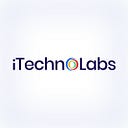Docker Vs Heroku: What’s the Difference Between Both Container Solutions?
Containerization is becoming extremely prevalent among app developers today. A container that abstracts away the app code and its dependencies from the host OS and has little access to the resources, allowing it to function on multiple types of structures without reworking it for each environment. Containers’ inherent flexibility and improved efficiency are advantageous in packaging services in contemporary programs. If you’re an app developer searching for a container-based app development framework, you’ve probably come across Docker Vs Heroku.
Both Heroku and Docker enable developers to create, deploy, and operate apps within containers. Docker and Heroku may have similar principles, but they are not the same: Docker is an open-source software program, whereas Heroku is a commercialized service provider. Docker may be downloaded, built, and installed on your laptop, or you can join its online community.
On Heroku, you can establish a user account, spend some money, and receive excellent service and hosting experience for your apps and code. Docker and Heroku are not the same things. However, some of their essential principles have certain commonalities.
This article discusses the various features, advantages and disadvantages, and differences between Docker Vs Heroku. This article will help you make the right choice for a container solution per your needs.
What is a Container? A Container System Usually Includes
A container is a typical software package that combines an application’s code with the necessary configuration files and libraries and the condition to ensure the app executes. This enables developers and IT professionals to deploy apps across environments in a seamless manner.
- The container engine, Docker or Heroku, is a managed environment for deploying containerized apps in this scenario. The container engine is in charge of managing the core and memory. It also controls spatial isolation and security for specific applications and allows for scalability.
- Host operating system: The host operating system (often Linux) manages resources such as memory, offers a user interface, and runs and serves applications.
- CPU: It is also known as the Central Processing Unit and is in charge of carrying out all tasks depending on commands from the operating system and applications.
What is Docker?
Docker is a container-based corporate app development framework that helps developers design, manage, test, and grow programs in separate containers. Each container has a copy of the code, configuration files, and libraries and runs separately.
Docker is an open-source software platform that enables you to execute your program almost anywhere. DevOps commonly use containerization solutions such as Docker to deliver programs more consistently and reliably.
What are the Features of Docker:
- Universality
Docker containers are self-contained, including all software requirements and runtimes and libraries. As a result, they are very portable, which eliminates the problem of configuration variables. Your code will operate on the cloud like it did on your production computer.
- Networking defined by software
Docker allows operators to construct systems with complicated network topologies and define isolated networks to improve network monitoring and performance by separating the network control layer from the forwarding plane.
- Swarm
Swarm, a grouping and scheduling tool, leverages a Docker API at the front end to allow developers to operate a cluster of Docker servers as a single virtual host.
It is a self-organizing collection of engines that allows for pluggable backends. Swarm may also schedule a container instance from a list of services defined within a cluster.
